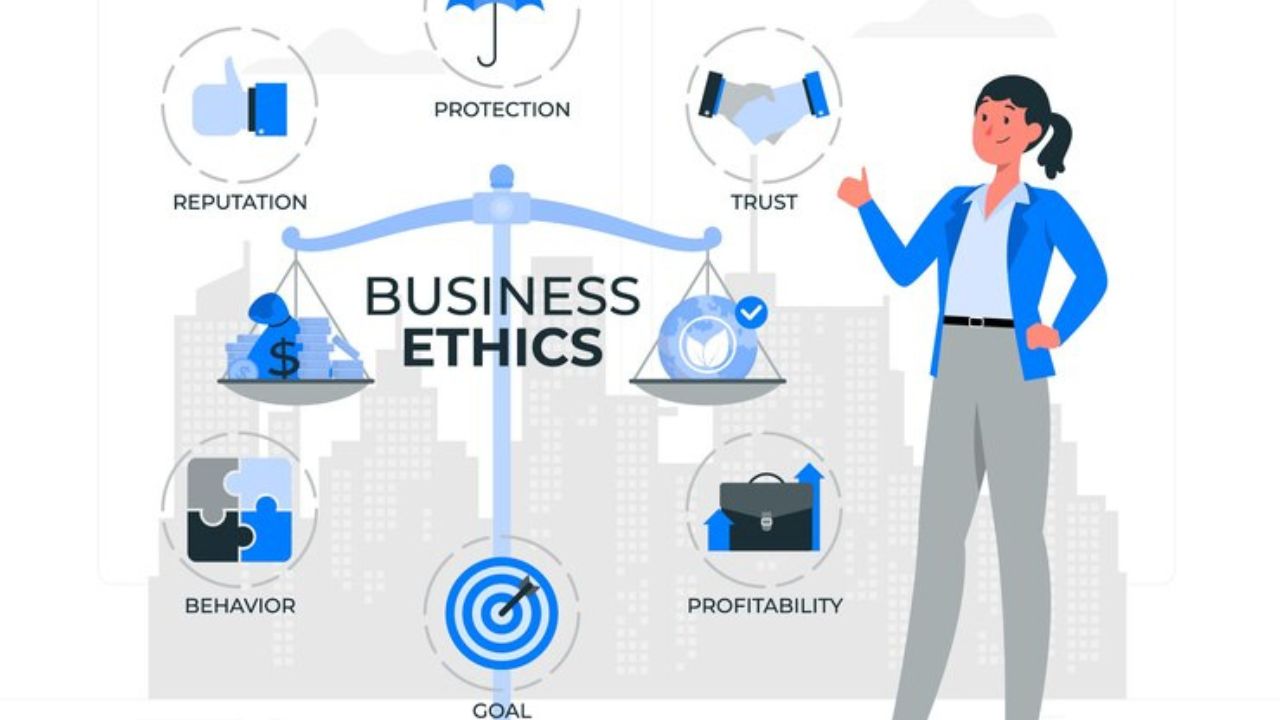Business
Effective business management

The business sector is the main force behind both societal advancement and economic prosperity. However, what is business exactly, and why is it so important?
What is Business?
An organization or enterprising entity involved in commercial, industrial, or professional operations is fundamentally what a business is. Companies come in different shapes and sizes: from small, family-run businesses to massive multinational conglomerates.
The Importance of Business in Society
Businesses produce income, stimulate innovation, and create jobs. They are essential for raising living standards and promoting economic growth. Businesses fulfill the wants and wishes of customers by offering goods and services, which improves society as a whole.
Types of Businesses
Small vs. Large Businesses
Individuals or a small group of people usually own and run small enterprises, which often employ fewer people. They frequently introduce distinctive goods and services to the market and are vital to regional economies. On the other side, large companies employ thousands of people, have a substantial market presence, and frequentlyess conduct business internationally. They have more money to devote to R&D and can take advantage of economies of scale.
Different Business Structures
There are several methods to structure a business, and each has benefits and drawbacks.
- Sole Proprietorship:
- Simple to establish, owned by a single person, but the owner is personally responsible for any debts.
- Partnership:
- Held by two or more individuals who split the company’s debt and earnings.
- Corporation:
- An independent legal body that is more regulated than its owners but provides limited responsibility.
- Limited Liability Company (LLC): combines the protection and flexibility of a partnership with the advantages of a corporation.
- Starting a Business
Steps to Start a Business
Launching a business requires the following crucial steps:
Idea Generation: Find a business concept that fills a gap in the market.
Market ResearchEvaluate the market, rivalry, and prospective clients.
Business PlanMake a thorough strategy that includes your financial estimates, strategies, and business goals.
Legal StructureSelect the suitable business structure and file for registration.
FundingObtain money from investors, loans, or personal savings.
LocationChoose an appropriate site for your company’s operations.
Licenses and PermitsAcquire the required authorizations and licenses.
Hiring: Hire and develop staff.
LaunchLaunch your company’s activities and start marketing it.
Business Planning and Strategy
To steer your firm, you must have a business strategy. It describes your goals, tactics, competitive analysis, organizational setup, and projected financials. Having a well-thought-out plan aids in maintaining focus, obtaining money, and determining success.
Business Management
Leadership and Management Styles
Robust leadership is a prerequisite for efficient corporate administration. Various kinds of leadership can impact the success of a business:
Autocratic: Best for making judgments quickly is centralized decision-making.
DemocraticEngages workers in decision-making to promote a cooperative
Laissez-faireMinimal interference, allowing workers to exercise their own judgment.
Effective Communication in Business
In company management, communication is essential. Everyone can contribute successfully and is in agreement with the company’s aims when there is clear, succinct, and transparent communication.
Marketing Strategies
Digital Marketing
Digital marketing makes use of online channels to connect with consumers. Among the strategies are:
Search Engine Optimization (SEO): enhancing search engine exposure for your website.
Social Media Marketing: interacting with clients on social media sites like Twitter, Facebook, and Instagram.
Content Marketing: generating worthwhile content to draw in and keep clients.
Email MarketingTargeted email marketing to cultivate prospects and foster client loyalty.
Traditional Marketing
Conventional marketing strategies are still useful for a lot of businesses. Among them are:
Print Advertising: Ads published in magazines, newspapers, and pamphlets.
Broadcast AdvertisingRadio and television ads.
Direct MailDelivering marketing materials straight to prospective clients.
Outdoor AdvertisingTransit advertisements, posters, and billboards.
Financial Management
Budgeting and Forecasting
Planning your company’s financials, assigning resources, and keeping expenses under control are all part of budgeting. By using past data to forecast future financial performance, forecasting assists you in making well-informed decisions.
Understanding Financial Statements
Crucial financial statements include:
Income Statement: displays profits, costs, and income over a certain time frame.
Balance SheetEnumerates the equity, liabilities, and assets as of a certain date.
Cash Flow Statementmonitors the money coming into and going out of the company.
Technology in Business
Impact of Technology on Business Operations
Technology increases productivity and efficiency by streamlining corporate processes. Cloud computing, data analytics, and automation are just a few instances of how technology improves business procedures.
E-commerce and Online Business
Retail has changed as a result of e-commerce, which enables companies to offer goods and services online. Businesses can reach a worldwide audience and run around the clock thanks to platforms like Shopify, Amazon, and eBay.
Human Resources
Hiring and Training Employees
Hiring the proper people is essential to the success of any organization. After hiring, offering thorough training guarantees that staff members have the abilities required to function well.
Employee Retention and Engagement
Retention depends on maintaining happy and involved staff members. This entails paying competitively, creating a happy workplace, and giving employees the chance to advance their careers.
Customer Relationship Management
Importance of Customer Service
Providing outstanding customer service fosters loyalty and confidence. It entails meeting deadlines, finding effective solutions to problems, and going above and beyond for customers.
Tools for Managing Customer Relationships
Software for customer relationship management, or CRM, assists companies in handling consumer interactions. Well-known CRM programs like Salesforce and HubSpot monitor client information, facilitate contact, and raise client happiness.
Innovation and Business Growth
Fostering Innovation in Business
To remain competitive, you must innovate. Businesses can expand and stand out by fostering creativity, making R&D investments, and remaining receptive to new concepts.
Strategies for Business ExpansionAmong the expansion tactics are:
Market Penetration: expanding market share in already-established markets.
Market Development: breaking into new markets.
Product DevelopmentPresenting fresh goods or services.
Diversificationextending into untapped markets.
Challenges in Business
Common Challenges Faced by Businesses
Enterprises encounter an array of obstacles, including shifts in regulations, competition, and economic volatility. To overcome these obstacles, one must be flexible and strategically organized.
Solutions and Strategies to Overcome Challenges:In order to overcome obstacles, companies can:
Stay Informed: Stay informed on market conditions and industry trends.
Be Agile: Quickly adjust to changes.
Invest in Technology:Utilize technology to boost productivity and marketability.
Focus on Customer Needs:Put the opinions and satisfaction of your customers first.
Sustainability in Business:
Green Business Practices:
Sustainable business strategies benefit the environment and draw in eco-aware customers. They include employing sustainable products, cutting back on waste, and saving energy.
Corporate Social Responsibility:
Businesses that practice corporate social responsibility (CSR) accept accountability for the effects they have on the environment and society. This can involve giving to charities, using moral labor standards, and conserving the environment.
Legal Considerations:
Understanding Business Laws and Regulations
It is essential to abide with laws and regulations. This comprises rules particular to a given industry, employment legislation, and tax laws. Financial penalties and legal problems may result from noncompliance.
Protecting Intellectual Property
Protection of intellectual property (IP) keeps the innovations produced by your company safe. Copyrights, trademarks, and patents keep other people from exploiting your ideas, creations, and brands without your consent.
Global Business
Expanding Your Business Internationally
International expansion can lead to the opening of new markets and business prospects. It does, however, necessitate an awareness of regional laws, cultural variances, and business environments.
Navigating Global Markets
Strategic planning, local relationships, and product and service adaptation to suit local needs and tastes are all necessary for success in global markets.
Conclusion
The Future of Business
Changes in customer behavior and technical breakthroughs are driving constant change in the corporate landscape. Sustaining flexibility and inventiveness is essential for future achievement.
Final Thoughts
Businesses can prosper in a constantly changing world by utilizing technology, concentrating on the demands of their customers, and encouraging an innovative culture. Strategic planning and ongoing learning are essential for success.
FAQs
What are the key factors for a successful business?
Having a clear vision, having strong leadership, having good marketing, having good financial management, and emphasizing customer happiness are all common characteristics of successful organizations.
How important is a business plan?
A business plan is essential for establishing objectives, obtaining capital, and determining the course of the enterprise. It aids in progress tracking and focus retention for business owners.
What are the benefits of digital marketing for businesses?
Digital marketing makes it possible to target campaigns to particular groups, reach a large audience at a reasonable cost, and measure the outcomes.
How can businesses adapt to changing market conditions?
Companies can adjust by keeping up with industry developments, operating nimbly, and releasing new goods and services on a regular basis.
What are the top challenges for small businesses today?
The need for digital transformation, competition from larger companies, restricted access to financing, and evolving legislation are among the main obstacles.

Business
The Handmade Accessories: A Journey into Craftsmanship

Often, when we think about The Handmade Accessories we picture the last touches—those tiny elements that make an ensemble come together. However, handcrafted accessories have a certain quality that transcends mere decoration. These items, which may be anything from a unique purse to an expertly made bracelet, convey tales of creativity, passion, and tradition. This essay will examine the world of handcrafted accessories, emphasizing their distinctiveness, the creativity that goes into them, and the reasons they continue to be in style.
Why Handmade Accessories Matter
Accessories produced by hand are distinctive and original in a world when mass production rules. Every handcrafted object is distinct from factory-made ones because it bears the artisan’s personal touch. Wearing a handcrafted necklace is like wearing a work of art rather than just accessories.
The Craftsmanship Behind Handmade Jewelry
The Artisan’s Dedication
Making an accessory by hand is no easy task. Each piece is the result of hours of painstaking labor by artisans, who make sure that every stitch and bead is flawless. What distinguishes handcrafted accessories from those made by machines is their commitment. The result is a labor of love, and that is evident.
Materials That Tell a Story
The range of materials utilized to create handcrafted accessories is one of their most exciting features. Every piece has a unique tale, from recycled textiles to diamonds that are responsibly sourced. These components are frequently used because they have symbolic meaning that links the accessory to a person’s culture or personal experience.
Sustainability and Ethical Fashion
In a time when environmental concerns are growing in significance, accessories crafted by hand provide a more moral option. Ethical work standards and a disdain for the environment are commonplace in mass production. Conversely, handmade goods are typically created in small quantities by talented craftspeople who have a strong love for what they do. Choosing handmade indicates your support for sustainable and ethical fashion.
The Personal Touch: Customization and Personalization
Customization is also another important benefit of handmade items. In contrast to mass-produced goods, which have few possibilities, handmade objects can be customized to your preferences. You have the ability to design something that is genuinely unique, regardless of the color, size, or material you choose.
Handmade Accessories in the Fashion World
In the fashion business, handmade accessories have also left their imprint. These distinctive designs, used in both daily wear and runway presentations, have become wardrobe mainstays worldwide. Fashion designers sometimes work with artisans to produce limited-edition collections because they value the authenticity and artistry of handmade accessories.
The Everlasting Appeal of Handmade Accessories
Why are handcrafted items so classic? It is their capacity to stay current regardless of the time of year or fashion. These items create fashion trends rather than merely following fads in the industry since they are frequently crafted with care and attention to detail. Handmade items can become treasured heirlooms when handed down from generation to generation.
Conclusion
In addition to serving as stylish accents, handcrafted accessories can serve as unique, cultural, and creative statements. If you wear something handmade, you are celebrating artistry and workmanship in a world where everything seems to be mass-produced. Thus, the next time you want to spice up your ensemble a bit, think about going handcrafted. In addition to wearing something genuinely distinctive, you will be promoting sustainability and helping craftspeople.
FAQs
Why are handmade accessories more expensive than mass-produced ones?
Due to the increased time, talent, and effort required to manufacture them, handmade accessories are frequently more expensive. Compared to mass-produced goods, each piece is handcrafted individually, which raises the work and cost.
Are handmade accessories more sustainable?
In general, handmade items are more environmentally friendly. They have less of an impact on the environment because they are frequently created using eco-friendly materials and in fewer quantities.
How can I tell if an accessory is truly handmade?
Look for indications of good craftsmanship, such as small flaws or distinctive elements that show the item was crafted by hand. Inquire about the making procedure from the vendor or craftsperson as well.
Can I request custom handmade accessories?
Of course! You can select the materials, colors, and designs that best fit your style thanks to the customisation choices that many artists offer.
Where can I find handmade accessories?
Handmade accessories can be purchased from the artists themselves, at regional artisan markets, or even online at sites like Etsy.
Business
Understanding Business Ethics: The comprehensive guide

When it comes to ensuring that businesses behave in a way that is just, fair, and beneficial to society, Understanding Business Ethics refers to the standards and principles that govern behavior in the business world. It is crucial for building trust between businesses and their stakeholders, which include clients, staff, and the general public. Additionally, business ethics involves applying moral principles to business situations.
The Importance of Business Ethics
In the globalized world of today, moral conduct is more important than ever. Businesses that put ethics first not only gain customers’ trust and loyalty but also improve their reputation, stay out of trouble with the law, and benefit society. Let us examine the importance of corporate ethics.
Building Trust and Loyalty
Enhancing Reputation
A corporation can stand out from its rivals with a solid ethical reputation. Businesses that uphold moral standards draw in partners, investors, and clients that respect honesty. A company’s reputation can also play a crucial role in times of crisis, since stakeholders are inclined to back businesses they perceive to be morally sound.
Key Principles of Business Ethics
Business ethics are supported by a number of essential ideas. These guiding concepts help businesses make decisions that are consistent with social norms and ethical standards.
Honesty and Transparency
The basis of trust is honesty. Understanding Business Ethics should refrain from misleading stakeholders and give them accurate information. Accountability and openness are fostered by transparency in corporate operations.
Fairness and Justice
It is essential to treat all parties involved fairly. Fair competition, equal compensation, and nondiscriminatory recruiting procedures are all part of this. Businesses ought to make an effort to level the playing field so that everyone has an equal chance to prosper.
Responsibility and Accountability
It is the duty of businesses to think about how their decisions may affect society and the environment. This entails accepting responsibility for their conduct and working to reduce unfavorable consequences like pollution or unethical labor practices.
Ethical Challenges in Business
Even though ethics are important, it can be difficult for firms to uphold ethical standards. Different cultural standards, competitive marketplaces, and internal pressures can all lead to these difficulties.
Conflicts of Interest
When personal interests collide with professional obligations, there is a conflict of interest. These disputes have the potential to erode trust and produce biased decisions. To manage and report possible conflicts, businesses need to have clear procedures in place.
Corporate Governance
Ethical business conduct is contingent upon the presence of effective corporate governance. This entails creating a set of guidelines and procedures that serve as a company’s direction and control system. Robust governance guarantees responsibility and synchronizes commercial operations with moral principles.
Promoting Ethics in Business
Businesses can encourage moral behavior among their employees in a number of ways. These actions contribute to the development of an ethical culture that penetrates all facets of corporate operations.
Developing a Code of Ethics
An official document that states a company’s moral principles and values is called a code of ethics. It gives employees a framework for moral decision-making and a means of assessing their conduct.
Ethics Training and Education
Employees who receive regular ethics training are better able to apply ethical principles in their job and comprehend the significance of acting morally. Education initiatives that support the business’s dedication to ethics should be extensive and continuous.
The Role of Leadership in Business Ethics
The development of an organization’s ethical culture is largely dependent on its leadership. Leaders set the standard for moral conduct and act as mentors to their subordinates.
Leading by Example
It is imperative for leaders to exhibit moral conduct in both their choices and deeds. Leaders set the example for honesty and responsibility, and staff members are motivated to follow suit.
Encouraging Open Communication
A culture that values open communication empowers staff members to raise issues and expose unethical activity without worrying about facing consequences. It is the responsibility of leaders to create a climate in which moral dilemmas are handled honestly and quickly.
Conclusion
The value of ethics will only increase as the business environment changes. Prioritizing ethical behavior will help Understanding Business Ethics in the long run and make society more equitable and just. Businesses may make sure they continue to be seen as reliable and esteemed members of the community by incorporating ethical standards into their daily operations.
FAQs
What is the definition of business ethics?
The term “business ethics” refers to the values and norms that direct conduct in the business sector and guarantee that decisions are reasonable, fair, and advantageous to society.
Why are business ethics important?
Business ethics benefit society by fostering loyalty and trust, enhancing reputation, preventing legal problems, and improving reputation.
What are some key principles of business ethics?
Honesty, openness, justice, fairness, responsibility, and accountability are among the fundamental values.
How can companies promote ethical behavior?
Establishing a code of ethics, offering frequent ethics training, and encouraging open communication are all ways that businesses can support ethics.
What role do leaders play in business ethics?
Leaders create an ethical culture by promoting open communication, modeling moral behavior, and setting an example of honesty.
Business
Rogue Trader Rotate Grand Strategist:The Dynamic World of Trading

When you hear the terms “Grand Strategist,” “Rogue Trader,” and “Rotate,” you may picture a high-stakes financial world where masterminds, risk-takers, and market movers are scheming over their next big move. This essay delves deeply into these fascinating ideas, elucidating their interactions in the trading industry and providing insights from their own narratives.
Understanding Rogue Traders
Definition of Rogue Traders
A rogue trader is a person who engages in unapproved or careless trading and acts contrary to the policies of their employer. These traders frequently take excessive risks in an attempt to reap large gains, but in the process, they put their companies and themselves in grave financial danger.
Historical Context and Famous Examples
Perhaps the most notorious rogue trader is Nick Leeson, whose illegal transactions caused Barings Bank to fail in 1995. Similarly, in 2008, Société Générale lost €4.9 billion due to the acts of Jérôme Kerviel. These people are well-known for using high-risk, frequently illegal trading methods that circumvent established protocols.
The Psychology Behind Rogue Trading
Overconfidence, excitement-seeking tendencies, and an invincibility complex are frequently present in rogue traders. This hazardous combination may cause people to engage in progressively riskier transactions, frequently masking their activities with intricate and dishonest techniques.
The Concept of Rotation in Trading
What Does “Rotate” Mean in the Trading World?
The term “rotate” in trading refers to the practice of moving investments from one asset class or industry to another in order to take advantage of market movements and lower risk. This strategy aids in keeping a varied and well-balanced portfolio.
Importance of Rotation Strategies
Rogue Trader Rotate Grand Strategic methods are essential for profiting from market cycles and controlling risk. Traders may be able to avoid downturns in certain industries and take advantage of development in others by rotating their investments.
Examples of Rotation in Trading Practices
A classic illustration would be switching between value and growth stocks according to the state of the market. In expansionary markets, investors may prefer growth companies; in contractionary markets, they may switch to value stocks for stability.
Grand Strategist: Who Are They?
Definition of a Grand Strategist
A trader who develops comprehensive, long-term strategies that take into consideration a variety of market events and contingencies is known as a grand strategist. They are anticipating market shifts rather than merely responding to them.
Traits of a Successful Grand Strategist
Rogue Trader Rotate Grand Strategist have in-depth understanding of the market, adept analytical abilities, vision, and flexibility in response to evolving circumstances. They plan ahead and consider both possibilities and possible obstacles.
Differences Between a Strategist and a Grand Strategist
A grand strategist adopts a comprehensive approach, combining multiple strategies into a coherent plan, in contrast to a strategist who concentrates on certain trading techniques. When making decisions, they take long-term trends, geopolitical developments, and macroeconomic variables into account.
The Interplay Between Rogue Traders and Grand Strategists
How Rogue Traders Operate Differently from Strategists
The actions of rogue traders are frequently impulsive, motivated by their own ambition and short-term gains. Grand Strategists, on the other hand, are meticulous and place a higher value on stability and long-term success.
Cases Where Rogue Traders Have Outmaneuvered Strategists
There have been cases where the high-risk wagers made by rogue traders have proven to be more profitable than the meticulously thought-out strategies of strategists. These victories, though, are usually fleeting and unsustainable.
Lessons Learned from Rogue Traders for Strategists
The audacity and resolve of rogue traders can teach strategists a thing or two, but they also need to temper this with discipline and risk management. Taking measured risks instead of rash bets is the key.
Strategies Employed by Rogue Traders
Common Tactics and Techniques
In order to get large returns, rogue traders frequently employ leverage, covert trades, and complicated financial instruments. In order to conceal their actions, they could fabricate documents and falsify accounts.
Risk Management (or Lack Thereof)
Poor or nonexistent risk management is one of the defining characteristics of rogue trading. These traders usually just think about possible gains, ignoring established procedures and safety measures.
Psychological Manipulation and Deception
In order to trick supervisors and coworkers, rogue traders often employ psychological manipulation. To cover up their illicit actions, they could project an air of confidence and success.
Strategic Rotation Techniques
Overview of Effective Rotation Strategies
In order to deploy assets wisely, effective rotation techniques analyze economic data, market cycles, and sector performance.
Timing and Market Conditions for Rotation
Understanding market trends and indications is essential for a successful rotation. Interest rates, economic statistics, and geopolitical events that may have an impact on market performance are things that traders need to be aware of.
Case Studies of Successful Rotation Strategies
Putting money into technology equities in the early 2000s in anticipation of the tech boom is an example of a successful rotation. On the other hand, switching to defensive industries during recessions helps protect wealth and lessen losses.
Developing a Grand Strategy in Trading
Steps to Becoming a Grand Strategist
Gaining expertise in various market scenarios, refining analytical abilities, and engaging in ongoing learning are all necessary to become a Grand Strategist. It calls for a thorough comprehension of both technical and basic analysis.
Essential Skills and Knowledge Areas
Strategic planning, portfolio diversification, risk management, and market analysis are important competencies. It’s also essential to understand behavioral finance, financial modeling, and macroeconomics.
Building a Resilient and Adaptive Trading Strategy
Resilient trading strategies are adaptable and may change with the market. It entails routine evaluation and modification to make sure it stays in line with long-term objectives and market realities.
Risk Management in Rogue Trading and Strategic Rotation
Comparing Risk Management Approaches
Grand Strategists place a high priority on risk management, but rogue traders frequently disregard it. Setting stop-loss limits, diversifying your investments, and keeping an eye on your risk exposure are all essential components of effective risk management.
Examples of Failures and Successes
One of the best examples of poor risk management in rogue trading is the demise of Barings Bank. On the other hand, the prosperity of hedge funds such as Bridgewater Associates underscores the significance of strong risk management in the context of strategic planning.
Mitigating Risks Through Strategic Planning
Rogue Trader Rotate Grand Strategic planning entails risk identification and the creation of backup measures. In order to manage market volatility, it entails scenario analysis, stress testing, and liquidity maintenance.
Technology’s Role in Trading Strategies
Impact of Technological Advancements
With the development of sophisticated tools for analysis, execution, and risk management, technology has completely transformed trading. These days, sophisticated trading techniques must use big data analytics, AI, and algorithmic trading.
Tools and Platforms Used by Traders
For market research and trade execution, traders use systems such as Thinkorswim, MetaTrader, and Bloomberg Terminal. These systems provide automated trading, sophisticated graphing, and real-time data.
Future Trends in Trading Technology
The use of AI and machine learning to forecast market movements will likely rise in the future. Secure transactions via blockchain technology will also likely be common, as will improved cybersecurity safeguards for trading platforms.
Ethical Considerations in Trading
Ethical Dilemmas Faced by Traders
Traders frequently have to make moral decisions about things like insider trading, manipulating the market, or concealing losses. Retaining integrity is essential for overcoming these obstacles.
The Thin Line Between Innovation and Illegality
Sometimes it’s difficult to tell what is lawful and what is illegal while using innovative trading tactics. It is imperative that dealers maintain up-to-date knowledge of legislation and guarantee adherence to legal requirements.
Regulatory Frameworks and Compliance
To maintain equitable and open markets, regulatory organizations such as the SEC and FINRA set regulations. In order to protect themselves legally and preserve the integrity of the market, traders must abide by these rules.
Lessons from Historical Rogue Trading Scandals
Analysis of Major Scandals
Examining incidents such as those involving Jérôme Kerviel and Nick Leeson enables one to see recurring themes of carelessness, excessive risk-taking, and institutional shortcomings.
What Went Wrong?
In these instances, rogue traders were able to carry out illicit actions covertly because of insufficient oversight, subpar risk management, and a failure to enforce trading limitations.
Preventive Measures for the Future
Strengthening internal controls, improving oversight, encouraging a compliance culture, and putting in place effective risk management frameworks are examples of preventive approaches.
Building a Sustainable Trading Career
Long-Term Planning and Career Development
Careers in trading that are sustainable are based on strategic planning, ongoing learning, and market adaptation. Traders ought to prioritize long-term objectives above quick profits.
importance of Continuous Learning
Because the financial markets are ever-changing, it is imperative that we always learn new things. It’s important for traders to keep up with emerging technologies, market trends, and legislative changes.
Networking and Mentorship in Trading
Developing a network of business contacts in the field and looking for mentorship can offer insightful advice, possibilities for career advancement in trading, and much more.
Conclusion
Grand strategists, rotation strategies, and rogue traders all have their distinct places in the dynamic and difficult world of trading. For traders of all skill levels, comprehending how they interact can provide insightful lessons. While rogue traders’ audacity can serve as inspiration, great strategists’ discipline and vision are ultimately responsible for long-term success. Traders can negotiate the intricacies of the market and create enduring strategies by fusing strong risk management with strategic rotation approaches.
FAQs
What is the main difference between a rogue trader and a regular trader?
While conventional traders work within the set guidelines and prioritize compliance and risk management, rogue traders engage in unapproved, high-risk trading frequently in violation of their company’s policy.
How can one identify a potential rogue trader in an organization?
Secretive behavior, a reluctance to take time off, disparities in trading records, and a pattern of high-risk trades that differ from established procedures are all indicators of a possible rogue trader.
Are rotation strategies applicable to all types of markets?
Indeed, rotation methods are applicable to a variety of markets, such as bonds, equities, commodities, and real estate, and they aid in risk management and diversification according to market cycles.
What are the key qualities of a great strategist in trading?
Prominent attributes encompass analytical proficiencies, anticipatory judgment, flexibility, profound industry expertise, and the capacity to unite many tactics into a coherent, long-range scheme.
How has technology changed the landscape for traders?
By offering cutting-edge tools for analysis, execution, and risk management, technology has completely changed the trading industry. Artificial intelligence (AI), algorithmic trading, and big data analytics have improved the accuracy and efficiency of trading.
-

 Celebrity10 months ago
Celebrity10 months agoJulia Rejean Moorhead: A Trailblazer in Her Field
-

 INFORMATION10 months ago
INFORMATION10 months agoUnderstanding Information: Its Role and Impact in Our Lives
-

 Sports10 months ago
Sports10 months agoGonzaga Basketball: The Rise of a College Hoops Powerhouse
-

 News10 months ago
News10 months agoThe Ever-Evolving World of News:Global Events Unfolding Today
-

 Sports10 months ago
Sports10 months agoThe Incredible Benefits of Sports: Boost Your Life on All Fronts
-

 Business10 months ago
Business10 months agoRogue Trader Rotate Grand Strategist:The Dynamic World of Trading
-

 Health10 months ago
Health10 months agoThe Ultimate Guide to Health: Tips and Strategies for a Healthier
-

 Technology8 months ago
Technology8 months agoFascinating Facts About Astronauts:The Ultimate Guide